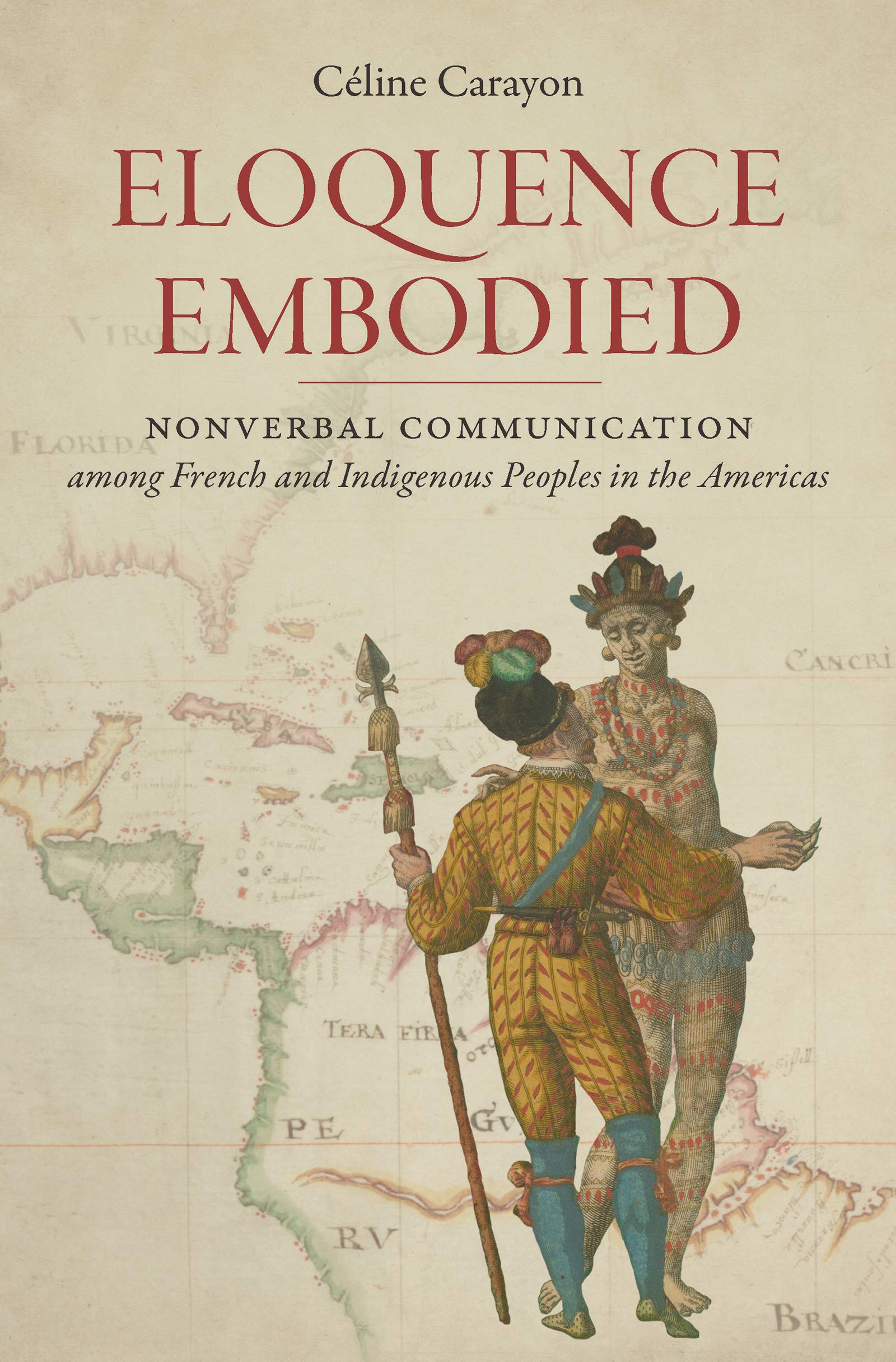Accueil > Actualités ultramarines > Vient de paraître Eloquence Embodied. Nonverbal Communication among French (...)
Vient de paraître Eloquence Embodied. Nonverbal Communication among French and Indigenous Peoples in the Americas de Céline Carayon aux University of North Carolina Press et par le Omohundro Institute of Early American History and Culture
Le 31 décembre 2019 à 09h07
Vient de paraître Eloquence Embodied. Nonverbal Communication among French and Indigenous Peoples in the Americas de Céline
"Taking a fresh look at the first two centuries of French colonialism in the Americas, this book answers the long-standing question of how and how well Indigenous Americans and the Europeans who arrived on their shores communicated with each other. French explorers and colonists in the sixteenth century noticed that Indigenous peoples from Brazil to Canada used signs to communicate. The French, in response, quickly embraced the nonverbal as a means to overcome cultural and language barriers. Céline Carayon’s close examination of their accounts enables her to recover these sophisticated Native practices of embodied expressions.
In a colonial world where communication and trust were essential but complicated by a multitude of languages, intimate and sensory expressions ensured that French colonists and Indigenous peoples understood each other well. Understanding, in turn, bred both genuine personal bonds and violent antagonisms. As Carayon demonstrates, nonverbal communication shaped Indigenous responses and resistance to colonial pressures across the Americas just as it fueled the imperial French imagination. Challenging the notion of colonial America as a site of misunderstandings and insurmountable cultural clashes, Carayon shows that Natives and newcomers used nonverbal means to build relationships before the rise of linguistic fluency—and, crucially, well afterward."
Celine


